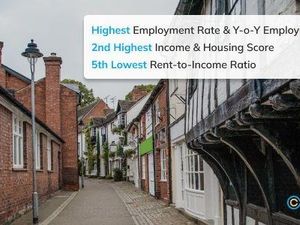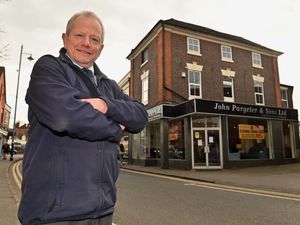Unemployment falls in West Midlands - but claimant count rising
Unemployment has continued to fall and a record number of women are in work, new figures have revealed.
The jobless total was 2.34 million in the final quarter of last year, down by 125,000. But the unemployment rate has risen, to 7.2 per cent, compared to the 7.1 per cent in the three months to November
In the West Midlands unemployment fell to 226,000 in the three months from October to December, down 31,000 on the previous quarter, today's data from the Office for National Statistics showed.
The number of people claiming jobseeker's allowance dipped to 1.22 million in January, down by 27,000 - the 15th consecutive monthly fall.
The two figures differ because not everyone classed as unemployed is eligible to claim the allowance
Despite the drop in the national figure, in the West Midlands, the claimant count rose by 4,187 to 131,462 in January as many seasonal jobs came to an end after Christmas.
The Department for Work and Pensions said that the seasonally adjusted figure showed a 3,100 fall in numbers claiming to 129,000.
In Wolverhampton it rose 315 to 10,557, or 6.6 per cent of the city's working population - more than double the national claimant rate of 3 per cent and the highest figure in the West Midlands.
In Walsall the claimant count was up 238 to 8,254 or 4.9 per cent, while in Dudley the rise was 270 to 8,271 or 4.3 per cent.
In the neighbouring district of Wyre Forest and Kidderminster, the number of people claiming jobseeker's allowance rose by 65 to 1,805, or 3 per cent. In Sandwell it rose 258 to 11,075 or 5.6 per cent.
Birmingham saw a rise of 673, taking its claimant count to 41,946 or six per cent.
In Staffordshire the county wide figure was up by 711 to 10,057. In Stafford there was a rise of 114 to 1,316, or 1.6 per cent. In Cannock Chase the claimant count rose 120 to 1,548 or 2.4 per cent, while in South Staffordshire it was up 79 to 1,294 or 1.9 per cent. In Lichfield the number claiming jobseeker's allowance was up 38 to 859 or 1.4 per cent.
Nationwide, more women are in work than at any time since records began in 1971, at just over 14 million.
But 1.4 million people are in part-time jobs because they cannot find full-time work, a fall of 29,000 over the latest quarter but 46,000 higher than a year ago.
Youth and long-term unemployment have both fallen, but there has been little change in the number of people classed as economically inactive, which has remained just under nine million.
The total includes people on long-term sick leave, students, those looking after a sick relative or those who have given up looking for a job.
Employment now stands at more than 30 million, a rate of 72.1%, which is 0.6% higher than a year ago.
The unemployment rate will remain a key focus, but is no longer linked to the Bank of England's pledge to keep interest rates at record lows after governor Mark Carney unveiled a new forward guidance policy last week.
The Bank had pledged not to consider a rate rise until unemployment fell to 7%, but with that target set to be reached much earlier than expected, the guidance has been replaced.
Average earnings increased by 1.1% in the year to December, 0.2 percentage points up on the previous month, giving average weekly earnings of £478.
The number of people out of work for longer than a year has fallen by 45,000 to 845,000, while 451,000 have been unemployed for over two years, down by 7,000.
There were 917,000 unemployed 16 to 24-year-olds in the latest quarter, down by 48,000 on the previous three months.
Job vacancies were up by 28,000 to 580,000, the highest since 2008.
Employment Minister Esther McVey said: "With employment continuing to increase, it's clear that the Government's long-term plan to build a stronger, more secure economy is helping businesses create jobs and get people into work.
"Record numbers of women are in work and youth unemployment continues to fall, which means more people have the security of a regular wage and can plan for their future."
Chief Secretary to the Treasury Danny Alexander said: "This recovery wouldn't be happening without the Liberal Democrats in Government.
"Quarter by quarter, job by job, we are rebuilding Britain's economy. Every job created is a family helped and a boost to our economic growth.
"This, combined with the encouraging news on inflation earlier this week, is further convincing evidence that our long-term economic plan is working.
"Rebuilding the economy, boosting employment, securing growth and controlling inflation are the only ways to secure living standards for the future."





